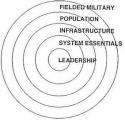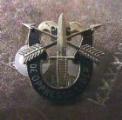
Originally Posted by
TheCurmudgeon

Well, they hosed up political legitimacy again.
Under the title "Principles of Governance":
By identifying representation as a core function of government (and in fact, the first core function), they have dictated that only electoral democracies can be a valid form of government. This means that this document is a manual for Democratization. A valid national security goal, but not one that should be confused with Counterinsurgency.
Curmudgeon - the writing team actually agreed with your concern about assuming democracy is the silver bullet solution to political legitimacy. We emphasized the importance of local expectations and perceptions throughout the document, and on page VIII-1 we explicitly wrote that,
(1) Representation includes political participation, decision-making procedures, responsiveness to the needs of the population, and accountability for decisions and their implementation. The effectiveness and legitimacy of representation depend on their appropriateness in the local context. For example, participatory governance does not necessarily equate to Western-style democratic institutions; it could consist of local shuras— informal gatherings of village or tribal leaders common in some countries in the Middle East and Central Asia.
And on page VIII-4 we reiterated that,
(2) Reconcile Local Expectations with USG Goals. In a COIN environment, what is and is not seen as effective and legitimate governance by the population will depend on the local context. A careful analysis is needed to determine what the local population considers appropriate and to what extent a failure to meet these expectations is contributing to the insurgency. The results will have to be reconciled with the USG’s strategic goals being pursued via the COIN operation. If democratic governance is part of the broader USG strategy, COIN efforts focused on locally appropriate governance to undermine the insurgent narrative will have to be reconciled with this more long-term agenda, which may generate challenges in terms of PA, IO, and interagency coordination. Generally, counterinsurgents seek to ensure that governance arrangements are inclusive instead of reinforcing societal divisions. The USG, and at times the joint force, may be able to assist by channeling assistance in ways that force cooperation across those divisions while also countering the insurgent narrative.
Have a look at Chapter VIII on Building Indigenous Governance to Support Counterinsurgency and let us know whether you think we hit the mark.
Bob - strongly agree with your points about the difference between legal legitimacy and political legitimacy. Will be very interested to hear whether you think that difference is adequately reflected in the document.
Cheers,
Max












Bookmarks